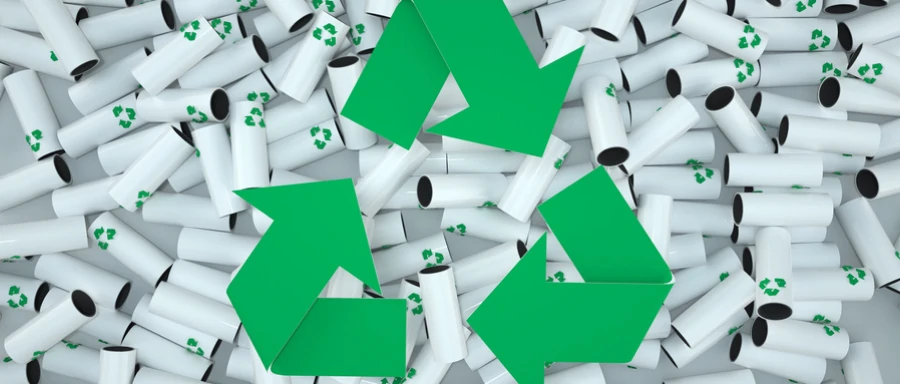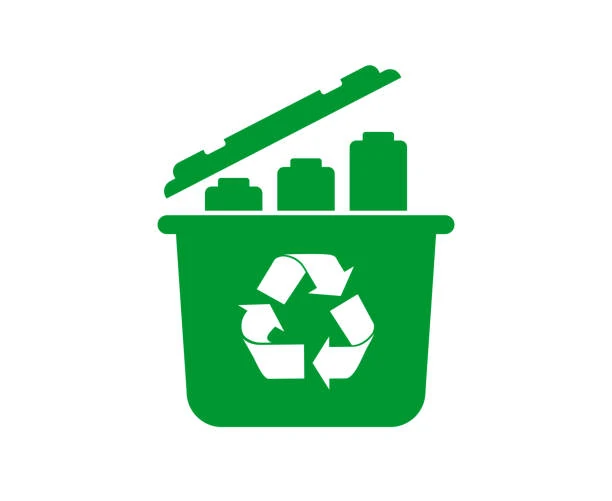How To Dispose Of Aa Batteries
In daily life, aa batteries have become an indispensable source of energy due to their widespread applications. However, when these batteries run out, improper disposal can cause long-term harm to the environment. Therefore, understanding and practicing the correct way of how to dispose of aa batteries is the responsibility of every battery user.
Firstly, look for local battery recycling points, as many communities offer battery recycling containers free, typically located in supermarkets or community centers.
Secondly, avoid discarding aa batteries with regular trash, as they contain harmful chemical substances to the environment.
Lastly, if you are unsure about the correct way of how to dispose of aa batteries, you can consult your local environmental protection agency or battery manufacturers, as they can provide proper guidance and advice.
By following these simple steps, we can collectively protect the environment and prevent battery pollution.

The Placement Of Battery Recycling Containers Free
To promote environmental protection and reduce the impact of discarded batteries on the environment, many regions and businesses offer battery recycling containers free. These containers are typically placed in public areas such as supermarkets, community centers, or schools, making it convenient for people to recycle used batteries. By using battery recycling containers free, we can ensure that batteries are properly managed instead of being discarded carelessly, thereby reducing pollution to soil and water sources. Let’s actively participate in battery recycling and work together to protect our environment.

Recycling And Disposal Of iMH Batteries
Nickel-metal hydride (NiMH) batteries are rechargeable batteries often used as a replacement for disposable AA batteries. Although they are more environmentally friendly than their single-use counterparts, they too require proper disposal when they eventually run out of charge. The nimh battery recycling is crucial for reducing environmental pollution, as these batteries contain valuable heavy metals that can be recycled. When the nimh battery recycling , it is important to ensure that they are collected correctly and sent to specialized recycling facilities for the reuse of materials.
Additionally, the nimh battery disposal must follow strict environmental standards to prevent the leakage of harmful substances. To ensure the safe disposal of these batteries, appropriate safety measures should be taken during the NiMH battery disposal process to prevent secondary environmental pollution. By responsibly nimh battery recycling and nimh battery disposal , we can significantly reduce the extraction of natural resources and decrease the disruption to ecosystems.
Environmental Disposal Of NiCd Batteries
NiCd batteries, short for Nickel-Cadmium batteries, represent an early form of rechargeable battery technology. Understanding the significance and necessity of recycling NiCad batteries is crucial. If improperly disposed of after use, the cadmium in NiCad batteries can leach into soil and water sources, causing long-term environmental contamination. Therefore, the nicd battery recycling is not only a requirement for environmental protection but also a legal responsibility.
When the NiCd battery recycling, it is crucial to ensure that the batteries are safely collected and sent to recycling facilities that are qualified and equipped with professional processing technologies. These facilities are capable of safely dismantling the batteries and recycling the useful materials within, while also properly handling hazardous substances. Professional recycling service centers take charge of the collection, sorting, storage, and packaging of waste traction batteries. Depending on their scale and equipment, these centers are categorized into two types: collection-type and centralized storage-type.
Additionally, the NiCd battery disposal should adhere to relevant environmental protection standards to ensure that no secondary pollution is caused to the environment during the processing. This includes taking appropriate safety measures during recycling, transportation, storage, and processing to prevent battery damage and the leakage of hazardous substances.
Moreover, for the NiCd battery disposal, there should be a clear labeling and classification system to ensure that different types of batteries are properly processed. Battery manufacturers and sellers should mark their products with explicit recycling symbols to guide consumers on how to recycle the batteries correctly. Consumers also have a responsibility to take their used batteries to designated recycling points instead of discarding them carelessly.
In summary, the recycling and disposal of NiCd batteries involve a comprehensive process that includes manufacturers, sellers, consumers, and recycling companies. Each link in the chain should adhere to principles of environmental protection and safety to ensure that the batteries are properly managed and the impact on the environment is minimized.
Alkaline Batteries Recycle
Although alkaline batteries do not contain harmful heavy metals, they still need to be properly disposed of. The alkaline batteries recycle is of great significance for the protection of the environment. Currently, most alkaline batteries on the market have achieved mercury-free or low-mercury status, but they still need to be channeled through proper recycling processes to ensure they do not pollute the environment. When the alkaline batteries recycle , used batteries should be placed in designated collection containers, which are typically located in supermarkets, community centers, or schools. By participating in the alkaline batteries recycle , not only can we reduce the exploitation of natural resources, but we can also prevent harmful substances from seeping into the soil and water sources, thus jointly preserving our ecological environment.
What Are Some Common Questions About Battery Recycling?
Can You Recycle Batteries?
Can you recycle batteries? The answer to this question is affirmative. In many countries and regions, battery recycling programs have been widely implemented to reduce the environmental impact of discarded batteries. These programs encourage consumers to take used batteries, including single-use alkaline batteries and rechargeable batteries, to designated recycling points.
Can you recycle batteries? Absolutely, in fact, many battery manufacturers and retailers support battery recycling and offer convenient recycling services. By participating in these recycling programs, consumers can properly dispose of used batteries and promote the recycling of resources.
By recycling batteries responsibly, we can all contribute to protecting the environment and promoting sustainable development.
Can You Throw Away Batteries?
Can you throw away batteries? Absolutely not. The heavy metals and chemicals contained in batteries can cause serious environmental pollution if not handled properly. Therefore, batteries should not be discarded carelessly. The correct approach is to take used batteries to designated recycling points and ensure they are processed through professional recycling and disposal procedures to prevent environmental harm. To reiterate, can you throw away batteries? No. We must handle used batteries responsibly to protect our environment and public health.
Can You Throw Batteries In Garbage?
When dealing with used batteries, a common question is, “can you throw batteries in garbage ?” The answer is no. Since batteries contain potentially harmful chemical substances to the environment, such as mercury, cadmium, and lead, they should not be casually thrown into household waste. The proper approach is to take used batteries to specialized battery recycling points, ensuring they are safely and environmentally processed. Again, it is emphasized that can you throw batteries in garbage to avoid potential pollution risks to soil and water sources. We should take a responsible attitude and dispose of used batteries through appropriate recycling channels
Properly disposing of AA batteries is the responsibility of each and every one of us. By using free battery recycling containers, handling rechargeable batteries correctly, and following environmental guidelines, we can contribute to the protection of our environment. Let’s work together to ensure these small but powerful energy sources are dealt with responsibly. Remember, even small actions can make a big difference.




